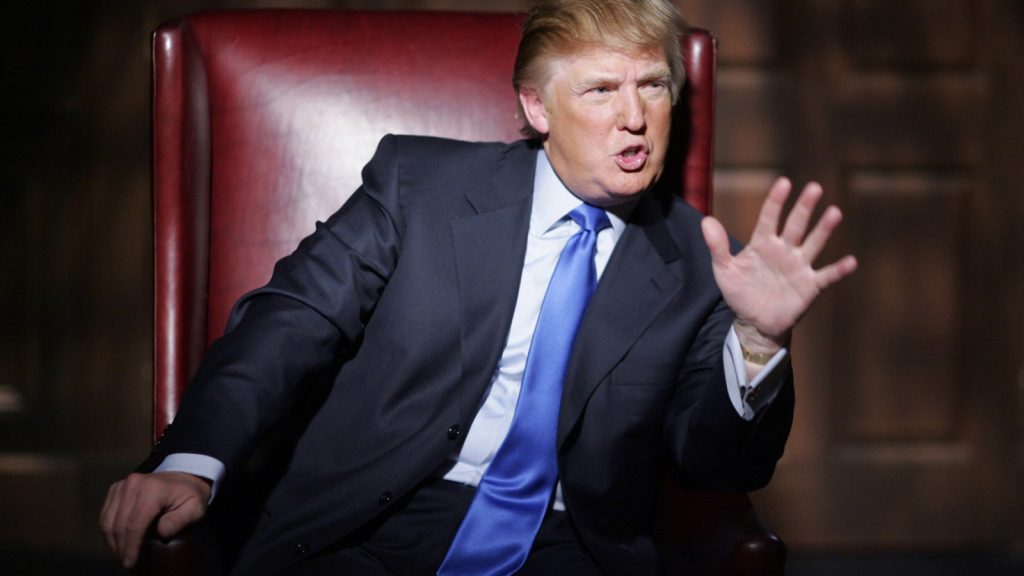In the 2004 debut of The Apprentice, a reality competition designed to polish Donald Trump’s image and kickstart his presidential ambitions, the billionaire real estate mogul presents himself to the American populace with a polished, ambiguous story about overcoming financial hurdles. As he narrates amidst stunning aerial views of New York — which he claims as “my city” — and footage of him piloting his helicopter over his own gleaming properties, Trump states, “Life wasn’t always easy. Thirteen years ago, I faced severe trouble, being billions in debt. But I fought back and triumphed remarkably. I utilized my intelligence and negotiation skills, and it all paid off.”
In truth, Trump managed to escape from over $3 billion in debt during the early 1990s, reportedly by leveraging loans from his affluent family and avoiding federal taxes. However, he skips those specifics to dive straight into introducing the 16 young Ivy League graduates and entrepreneurs who will vie weekly for a chance to “work for the Donald” and possibly, achieve billionaire status themselves.
Fast-forward to the competition’s inaugural morning, where the group of young, conventionally attractive contestants gathers at the New York Stock Exchange, gazing up at Trump, who addresses them from an elevated balcony. At this moment, he is two decades younger—his hair fuller and darker, with less exaggerated makeup, presenting a demeanor that is more congenial. “This is truly the world’s hub for big business,” he proclaims to his apprentices like a magnanimous deity of finance, before separating the men from the women and sending them into the streets of Manhattan for a lemonade-selling contest.
When Trump announced his candidacy for the Republican presidential primary in 2015, as a young politics reporter at Huffington Post, I remember many of us initially perceiving it as a joke or a gimmick. Our editorial director and Washington bureau chief even released a statement indicating we would cover Trump in the Entertainment section, not Politics, declaring he was simply a sideshow. However, as it became increasingly apparent that many voters were genuinely interested in electing him, we came to regret that decision.
This superficial portrayal morphed into a significant political movement, leading to Trump’s eventual presidency. In a striking turn, tech titans now actively seek Trump’s favor, mimicking the behavior of his 25-year-old apprentices from the early 2000s. Amazon founder Jeff Bezos even bought The Washington Post to turn its opinion pages into a conservative platform. Notably, Amazon Prime Video announced it would start streaming the first seven seasons of The Apprentice, providing royalties to Trump, who starred and produced the show.
For those who missed The Apprentice during its original broadcast, its return to streaming offers an uncomfortable but insightful opportunity to reflect on the cultural context that aided Trump’s rise as a public figure. After enduring the first three seasons, it becomes evident that Trump appears remarkably different from the chaotic figure we see in contemporary news.
While he often projects a savvy and empathetic image, interactions reveal glimpses of the Trump persona we know today. He emphasizes loyalty over business acumen and dispenses unexpected firings based on interpersonal dynamics rather than performance metrics. These moments illustrate how, even in a competitive setting, Trump effectively cast himself as the embodiment of the American dream—conveying to contestants that his billionaire lifestyle is attainable. As the series progressed, Trump’s persona shifted from introducing himself with stories of struggle to declaring, “You know everything about me,” in just the third season.



